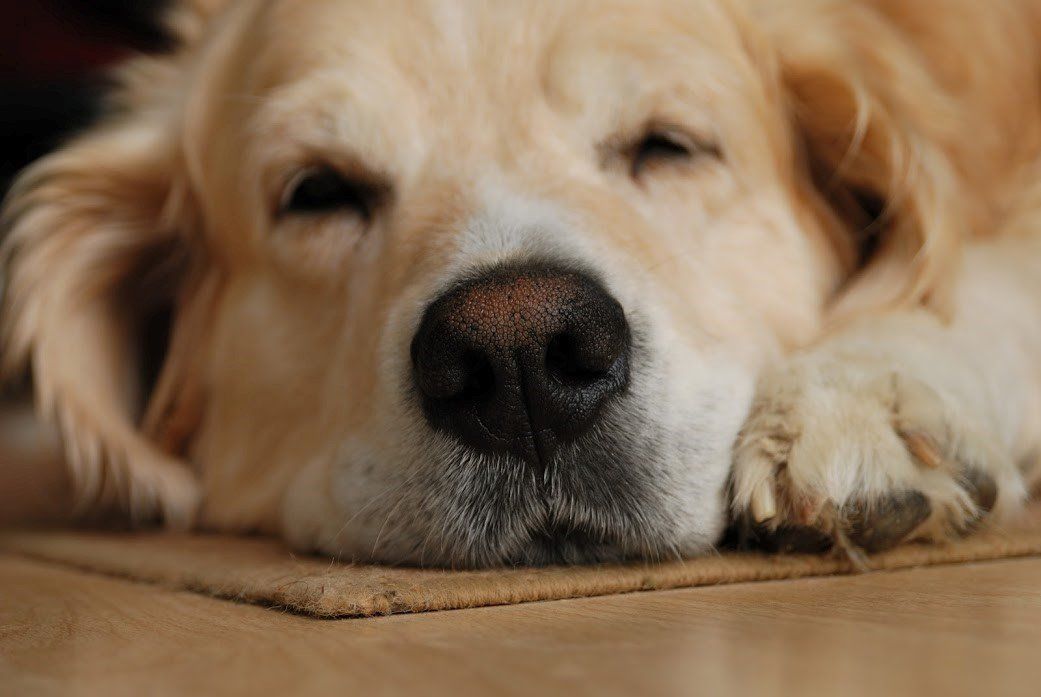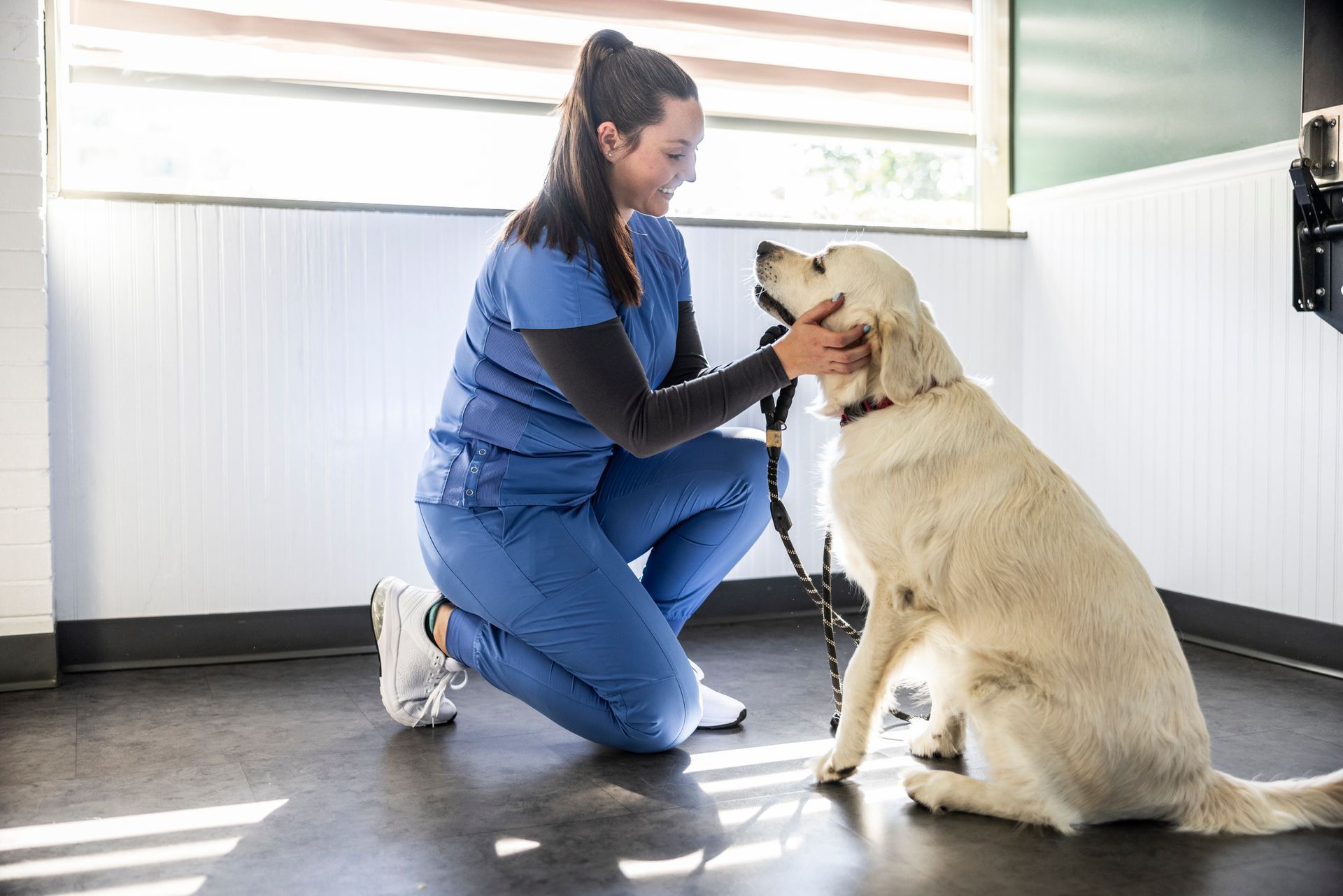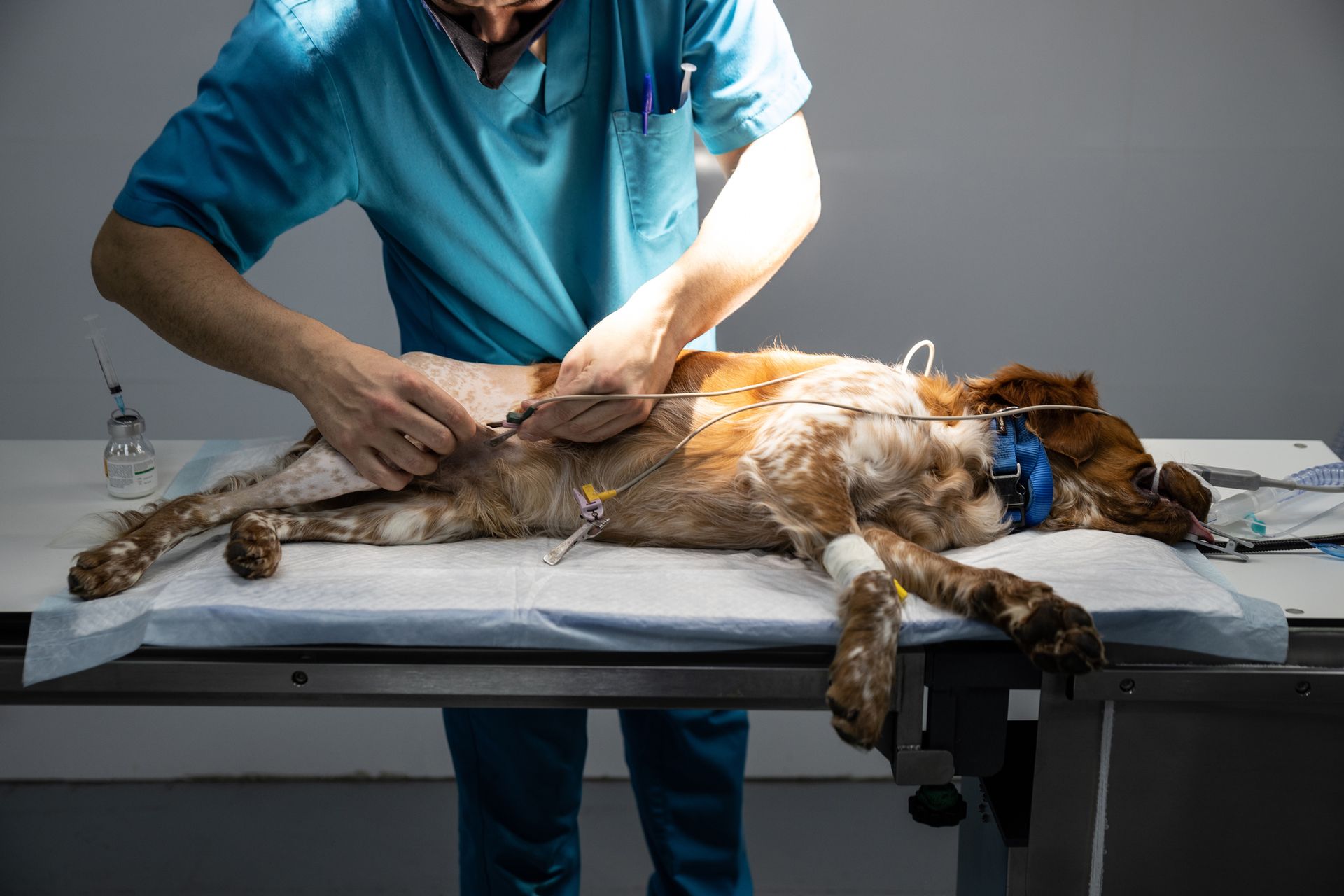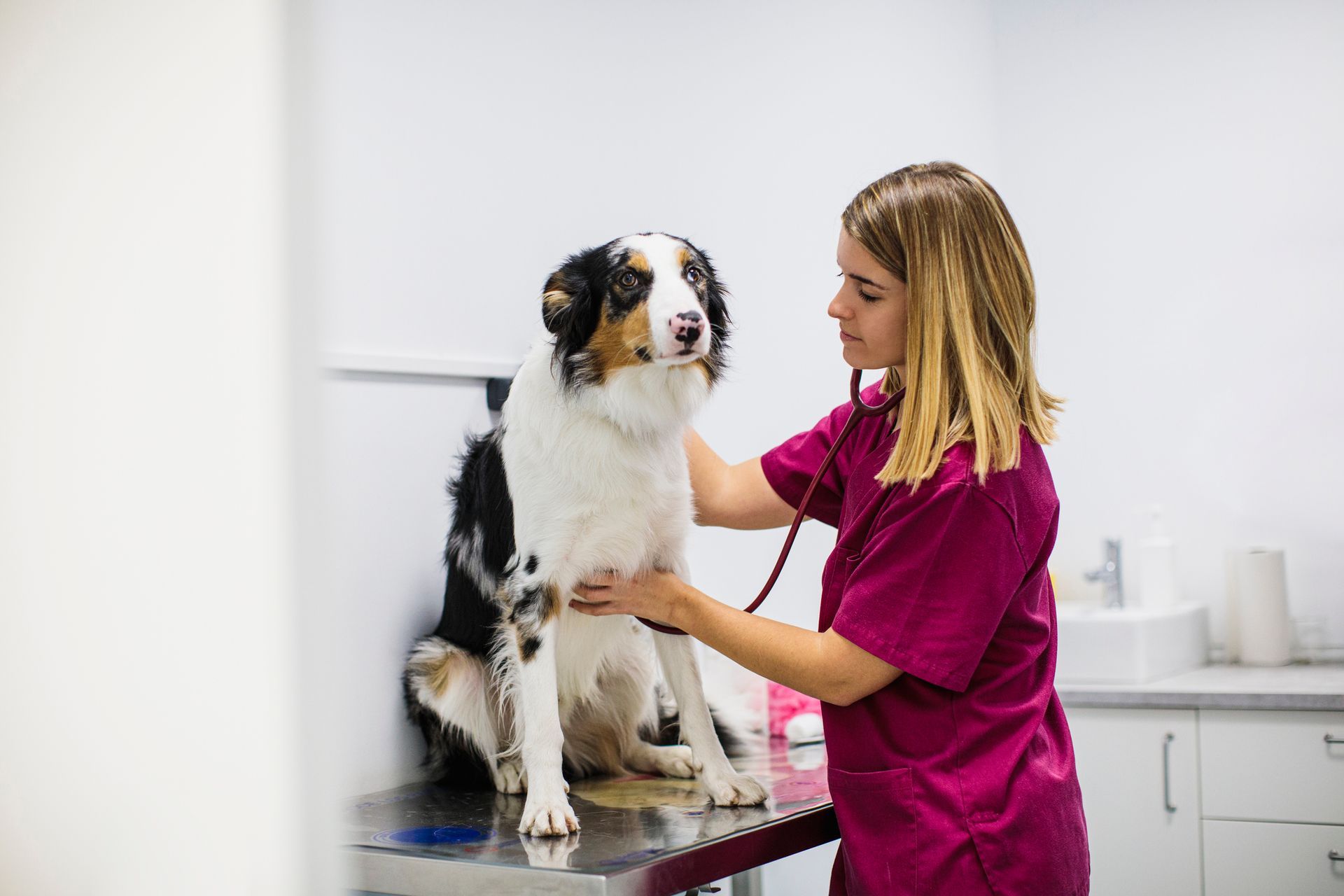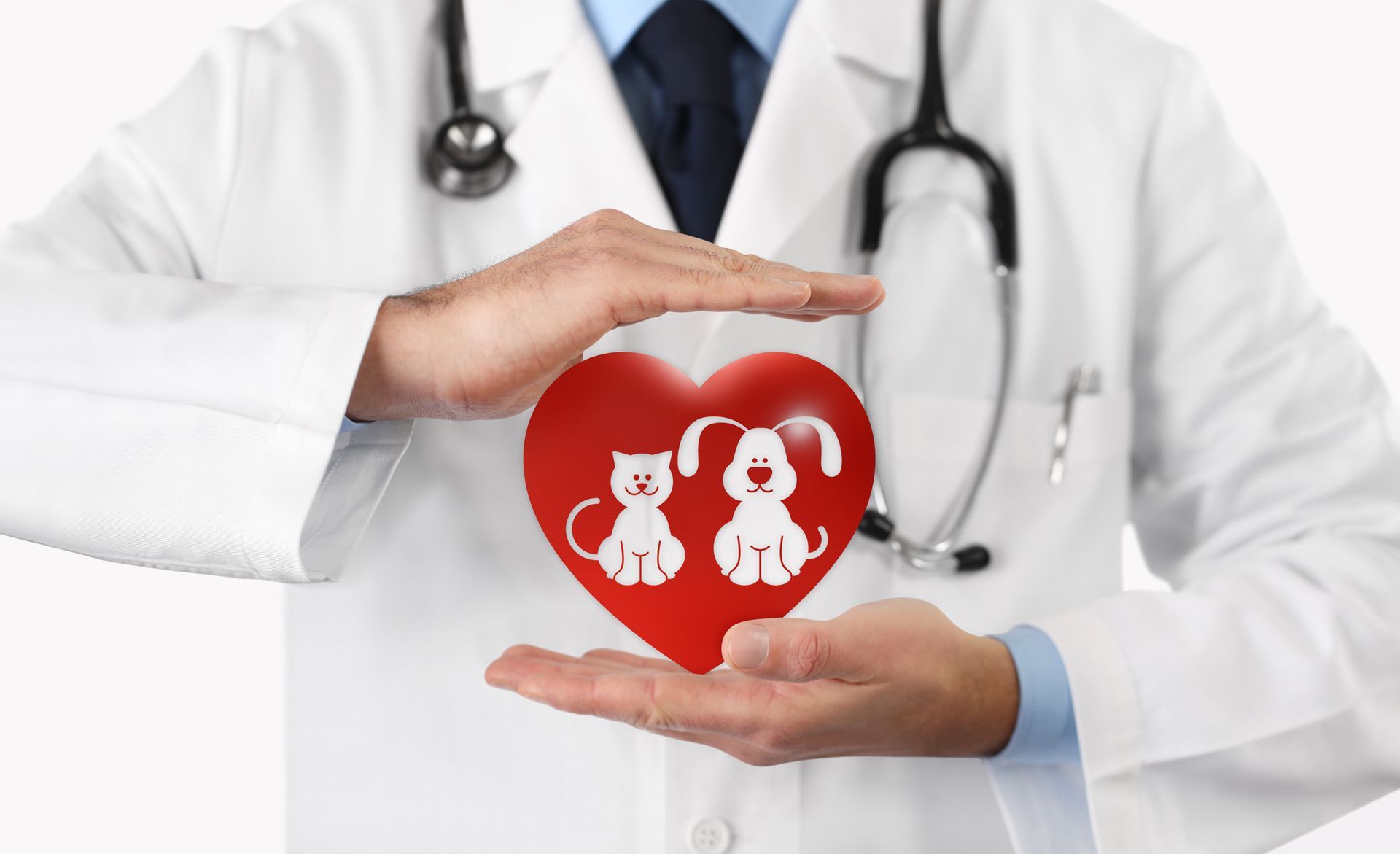Tips for Helping Senior Dogs Thrive
Many people don't know how to handle older dogs, but that's exactly when a senior pet needs their owner the most. Follow these tips to help your canine companion thrive throughout their golden years in comfort and happiness.
Keep Your Senior Dog as Active as Possible
The more active your senior dog is, the better they may fare as they age. Keep your dog active to help them avoid weight gain. Exercise may also help promote heart health and longevity. If your senior dog is just starting to exercise, begin with short walks. It's fine to start with a five-minute walk and then lengthen the walks over time.
When you are exercising with a senior dog, look for signs that they may be overexerting themselves. A geriatric dog will want to keep up with you and may not know when to slow down. If your dog can't catch his breath, stop immediately and comfort your dog. If it's hot outside, be sure to stop and give your dog water frequently throughout the workout.
Use Ramps to Help Dogs Climb
Most dogs are happy to climb stairs and jump onto furniture. However, as your dog starts to age, you may notice that they avoid places they used to love. Arthritis is common in older dogs, and joint pain can keep dogs from doing things they love. If your dog is no longer jumping on the sofa for snuggles, consider whether they may not be able to comfortably jump anymore.
Help your dog continue to access the many things they love with an inexpensive, portable, and collapsible ramp. These ramps are available to help pets easily walk up into the car they used to jump into. These ramps can also be used to help your pet climb a few steps to a front porch or jump up onto a bed or sofa.
Pay Attention to Your Dog's Eyesight
Remember to get your dog's eyes regularly examined. Senior pets often get cataracts and may have other eye problems that are treatable with early intervention and quality medical care. Common vision problems in older canines include glaucoma, macular degeneration, and uveitis.
If your senior dog is dealing with vision loss that is beyond your control, make them as comfortable as possible by keeping the things your dog needs within easy reach.
Also, avoid moving furniture or changing the dog's environment. Be patient with their need to sniff since dogs who are losing their eyesight will depend even more on their other senses.
Consider Taking Your Senior Dog for More Check-Ups
Talk to your veterinarian about whether you need to take your canine companion in for more regular check-ups. Dogs who are at high-risk for some health issues may need to be monitored for those conditions. Your veterinarian may perform a blood test and urinalysis. Senior dogs may also need x-rays for a wide range of problems, and their blood pressure may be checked.
To make the most of each vet visit, buy a notebook to record observations about your senior dog's health in between check-ups. Jot down any unusual behaviors. If you notice that your dog has issues eating or drinking, make a note of it. Also, be sure to set aside a page where you write down any questions for your veterinarian that you want to ask on your dog's next appointment.
Prioritize Healthy Foods in Your Dog's Diet
A healthy diet can help prevent some common problems geriatric pets face. Food is a great pleasure for any dog, but there's no reason that your senior pet's diet can't be both nutritious and delicious. However, keep in mind that older pets generally need fewer calories to help avoid obesity as their metabolism slows.
Ensure that the dog food you offer your senior pet is made with high-quality ingredients. A senior dog's diet should be high in antioxidants, which will help promote a strong immune system. Also, check to make sure that your dog's diet includes plenty of essential fatty acids. Your dog may need a supplement if they're not getting all the nutrition they need in their planned diet.
Talk to your veterinarian about whether your dog needs a special diet. Dog food that is specially formulated for a senior pet's needs is typically ideal. Senior canine companions can still enjoy treats, but they should only be given in moderation if your dog gains weight easily or chooses treats over healthier fare.
Assess Your Dog's Vaccination Needs
As your canine companion enters their golden years, their vaccination needs may change. Talk to your veterinarian about an ideal vaccination program for your senior pet. The immune system in a geriatric dog probably won't be as strong as it used to be, which can make certain vaccinations especially important to help a senior dog fight infections and illnesses.
Contact South Seattle Veterinary Hospitalany time of day if your senior dog needs help. We have a caring doctor on the premises 24 hours per day every single day of the week. We offer dental services, companion laser treatments, ultrasounds, and other services to ensure your senior pet enjoys a high quality of life for as long as possible.


